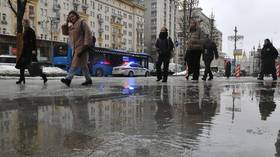Crisis breeds generation of unemployable
Hit by the recession, the once-prosperous UK town of Swindon has one of the highest unemployment rates in the country. Many fear it will lead to a whole generation of people who've lost their will to work.
During the last decade, the town of Swindon has been one of the UK's booming economies, creating a wide range of job opportunities. But now the things have changed.
Walk down the high street in almost any British provincial town nowadays, and you’ll see boarded up shops. But probably not as many as you’ll see in Swindon in the South West of England. Home to around 155,000 people, it’s one of the UK’s worst recession-hit towns, with a rise in unemployment of 147% in the year to July.
Swindon is home to 600 NEETs – young people "Not in Employment, Education or Training". The recession threatens to produce a generation of young people here who have been trying and failing to get jobs, and have lost the will to work. That’s something local MP Anne Snelgrove is all too aware of.
“We can’t have them sitting around doing nothing for two or three years during this recession, and as it picks up, because they are then very much unemployable for the next 10 years of their lives. We’ll lose a whole generation in Swindon if we’re not careful,” she said.
Swindon is a microcosm of the industries that have been hit by the crisis – it hosts a mixture of high-tech firms like finance, IT and banking, and manufacturing.
The local Honda factory has recently reopened after a four-month closure, during which it managed to retain its entire staff on at least some pay. But that closure had a massive knock-on effect, according to Mike Little, director of recruitment agency Storm.
“There are 50, 60 small businesses, and quite large businesses that supply to Honda,” he said. “So when they shut down, and with the banks the way they are, they weren’t prepared to back them for the six months, so a lot of them have gone to the wall.”
Storm Recruitment is on Commercial Road, previously a premium location full of estate agents, banks and employment firms. Now, many of the units lie empty.
This year of recession has turned Swindon from a thriving multi-sector hub into a depressed town, and that’s particularly apparent in its many industrial estates. Like a lot of places in the UK, Swindon has seen signs of recovery, but it’s a fragile improvement, and brings with it no guarantee of a return to former prosperity.












